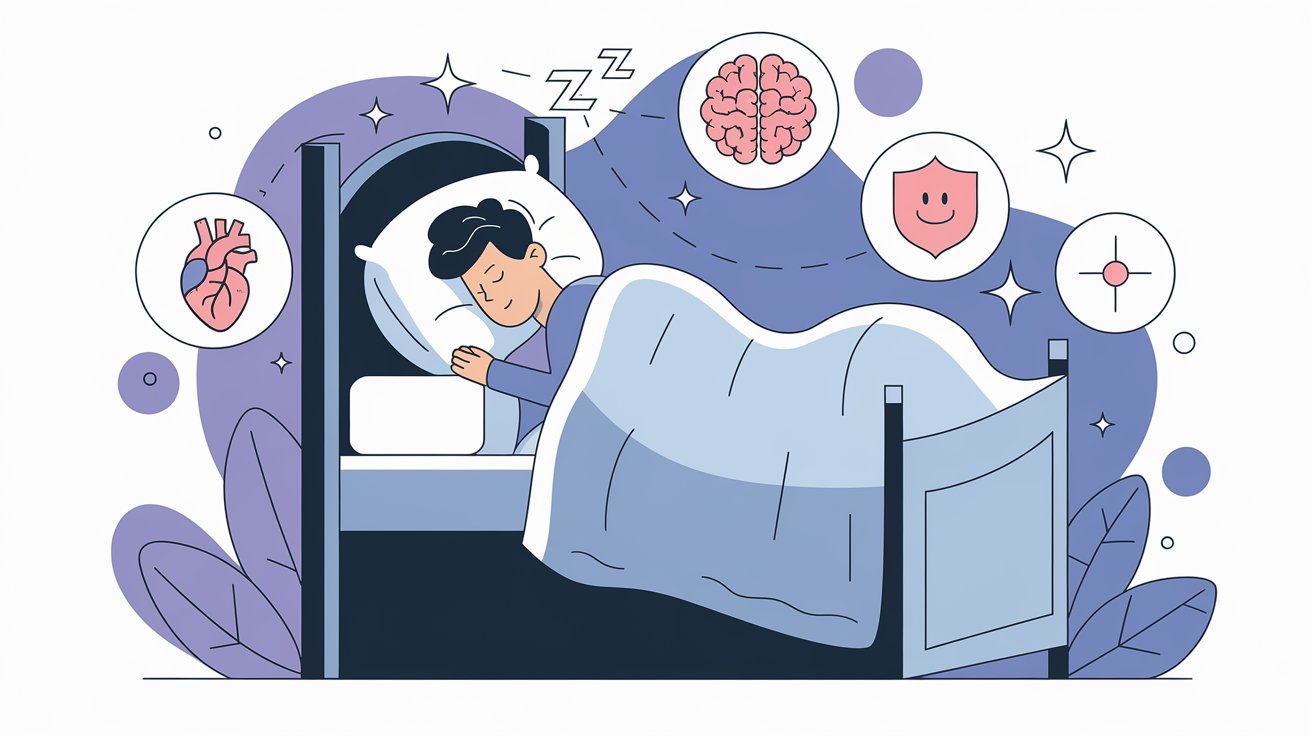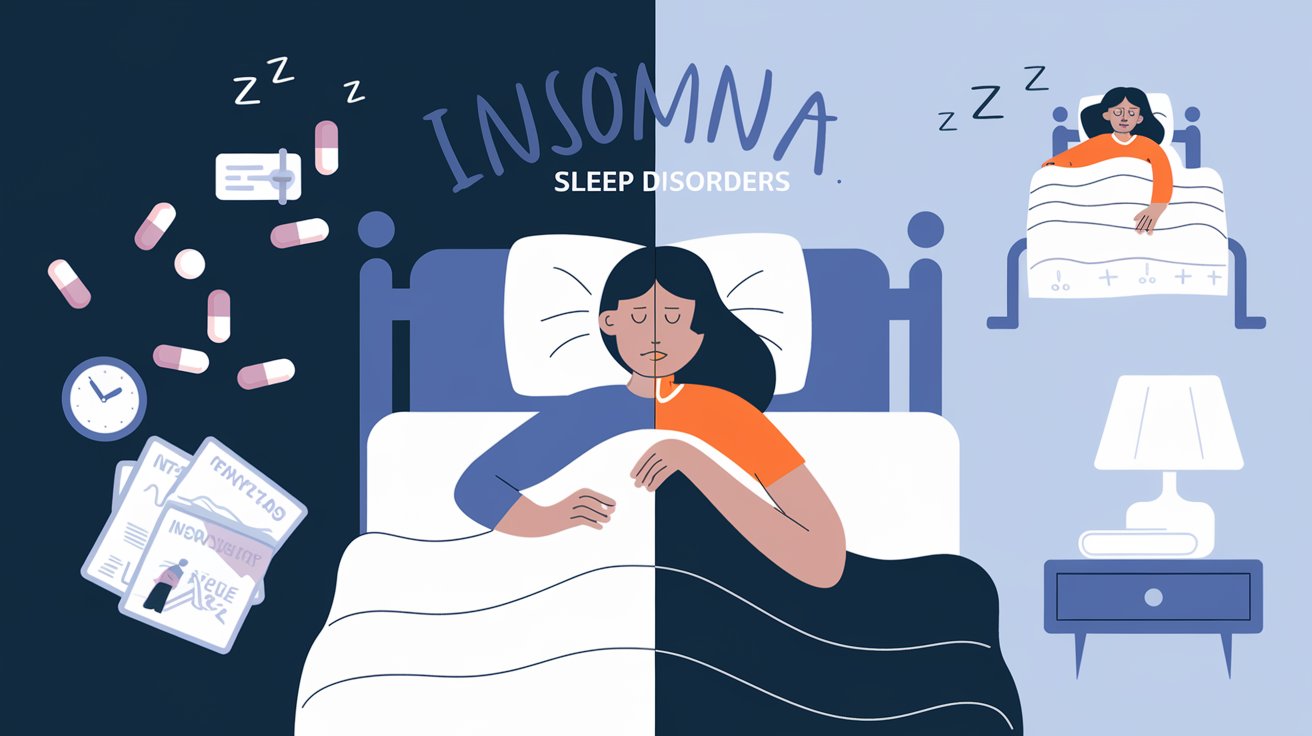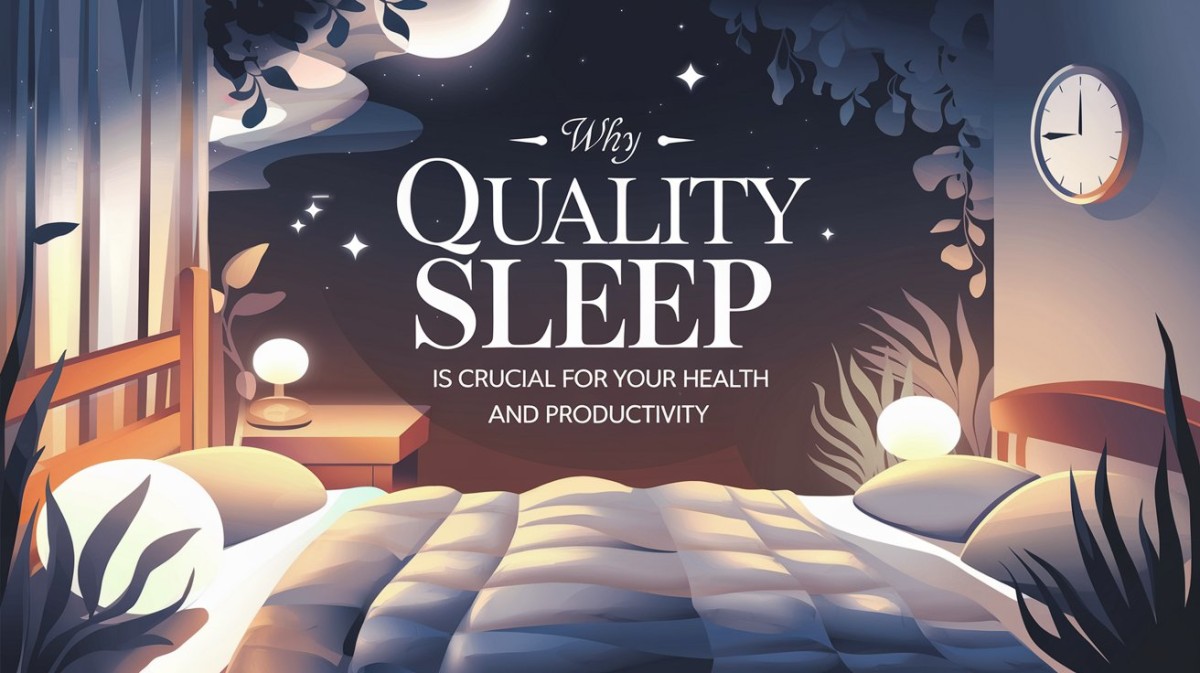Is it possible to wake up one morning and you can easily jump over tall buildings, when the next morning you just can’t seem to get out of bed? More often it is hidden in quantity and quality of a rest. According to different studies, it is not necessary to have hours of sleep depending on the age, but to feel refreshed in the morning. Well then, what role does sleep play that it is necessary for your health and efficiency? Let’s dive in.
The Science Behind Quality Sleep
Sleep is not just a single stage, but a number of stages, which are; light sleep, slow wave sleep, and REM or Racing Eye Movement sleep. About each stage can be said the definite function; it can be repair of the body, consolidation of the material, regulation of the emotional state. And when you have breaks, or, in the process of these, you do not catch up the interrupted periods, your body as well as your mind lose the rest.
Adults need 7-9 hours of sleep according to the National Sleep Foundation. However, the focus is now more on how many hours one has slept more the quality of the sleep that has been had. Quality sleep basically means that the body goes through multiple, cycles of repair mechanisms making you and your mind alert and fresh.
Health Benefits of Quality Sleep

Improved Immunity
Regenerative phase is powerful for your immune system. During deep sleep, your body also releases cytokines, which are proteins that are specific in attacking infections and inflammations. This process is affected when you get inadequate sleep, making you prone to diseases.
Better Heart Health
Quality sleep helps to manage blood pressure and lessen the amount of stress hormones in the body which are majority needed for a healthy heart. Lack of quality sleep is associated with moderate to severe health disorders such as hypertension, heart ailments and stroke.
Enhanced Mental Health
There is evidence that sleep is involved in regulation of the emotions. It doesn’t exacerbate pressure and lowers the likelihood of emotive illnesses like anxiety and melancholia. Despite this, it is REM sleep that is the most critical for processing emotions and keeping the subject’s psychological equilibrium in check.
Weight Management
Sleep alters growth hormones that in one way or the other are related to the hormones that control hunger–The Ghrelin and Leptin. When you sleep less, ghrelin rises (the hunger hormone) and leptin drops (the fullness hormone) leading to overeating. Further, it reduces your metabolism rate thereby increasing your chances of being overweight.
Lower Risk of Chronic Diseases
Some research has connected the deficit in sleep quality with an increased likelihood of getting chronic diseases including diabetes, arthritis, and specific forms of cancer. During sleep, the body’s inflammatory and insulin processes are maintained at healthier levels, which are necessary for good health.
How Sleep Boosts Productivity

Sharper Cognitive Function
It reduces the loads of stress hormonal cortisol whilst improving or boosting memory, learning and problem solving abilities. While we are asleep, the brain processes new information, disorders it and allows better focus and decision making amongst others.
Increased Energy Levels
It remodels your energy thus make you more active during the day unlike when you have sleepy all the time. This directly cuts the time one takes to produce results at either work or school hence implying productivity.
Emotional Resilience
However, quality sleep enhances your emotional intelligence, which is important in organizations hence the discussions above.
Better Time Management
In this case, the employees can complete their work quicker and with less mistakes if their body and mind is fully rested. This makes you to have ample time to dwindle and beidle away.
The Consequences of Poor Sleep

Lack of sleep has severe effects because your body literally needs to be asleep each night. Here are some risks:
❖ Physical Health Issues: Prolonged lack of sleep results in increased chances of getting obese, developing diabetes and poor immune system.
❖ Mental Health Problems: Lack of sleep causes mood disorders and even burnout and reduced cognitive functions.
❖ Reduced Productivity: Lack of sleep leads to reduced attention span, poor memory, and instability in decision-making, all of which lead to a lot of mistakes that are expensive to correct.
❖ Poor Relationships: This will cause you to have poor tolerance levels thus worsening relationships with friends and/ or colleagues and family members at the workplace.
Tips for Achieving Quality Sleep
1. Keep a Regular Sleep Schedule: Go to bed and wake up at the same time every day, including on weekends. This will set your body's internal clock.
2. Make Your Bedroom Sleep-Conducive: Ensure that your bedroom is dark, quiet, and cool. Invest in a comfortable mattress and pillows. Consider blackout curtains and white noise machines if needed.
3. Reduce Your Screen Time Before Bedtime: Blue light from mobile phones and computers hinders the production of melatonin, the sleep hormone. Refrain from using these screens at least an hour before sleeping.
4. Watch Your Diet: Avoid caffeine, alcohol, and heavy meals just before bed. Choose some sleep-friendly snacks such as bananas or warm milk, if you feel you really need a late-night bite.
5. Incorporate Relaxation Techniques: Relaxation techniques such as deep breathing, meditation, or reading a book can calm your mind and prepare you for sleep. Another useful technique is progressive muscle relaxation.
6. Exercise: Physical activity promotes better sleep, but do not exercise vigorously close to bedtime as it may wake you up.
7. Bedtime Routine: Developing a pre-sleep routine that involves activities such as a warm bath, listening to soft music, or journaling can help your body realize that it is time to wind down.
8. Keep Stress at Bay: Too much stress at work or in daily life can be a sleep barrier. Consider adding stress management techniques like yoga or mindfulness exercises to your daily schedule.
The Link Between Sleep and Long-Term Success
Quality sleep isn't just about feeling good for the moment; it's about setting yourself up for long-term success. Even leaders and high performers around the world are keen on mentioning sleep in any routine. Your capacity to innovate, adapt, or lead depends on your mental acuity and energy levels, both of which are significantly influenced by your sleep.
Addressing Sleep Disorders

If you are unable to sleep for a long time, despite following healthy habits, then you may have a sleep disorder like insomnia, sleep apnea, or restless leg syndrome. You should consult a health care professional for proper diagnosis and treatment. Addressing underlying issues can significantly improve your quality of life.
❖ Sleep Apnea: This condition is characterized by interrupted breathing during sleep. It requires medical attention. The treatments may include CPAP machines or lifestyle changes.
❖ Insomnia: Cognitive-behavioral therapy and modifications in sleep hygiene are quite effective.
❖ Restless Leg Syndrome: This condition is most of the time manageable through medications and lifestyle modifications.
For more such related blogs, check out out content on Health Benefits.
Conclusion
In today’s fast-paced world, sleep is often undervalued. Yet, it’s one of the most powerful tools for improving your health and productivity. By prioritizing quality sleep, you’re not just investing in your present well-being but also securing your future success. So, the next time you’re tempted to sacrifice sleep for work or entertainment, remember: nothing fuels a productive life like a good night’s rest.
